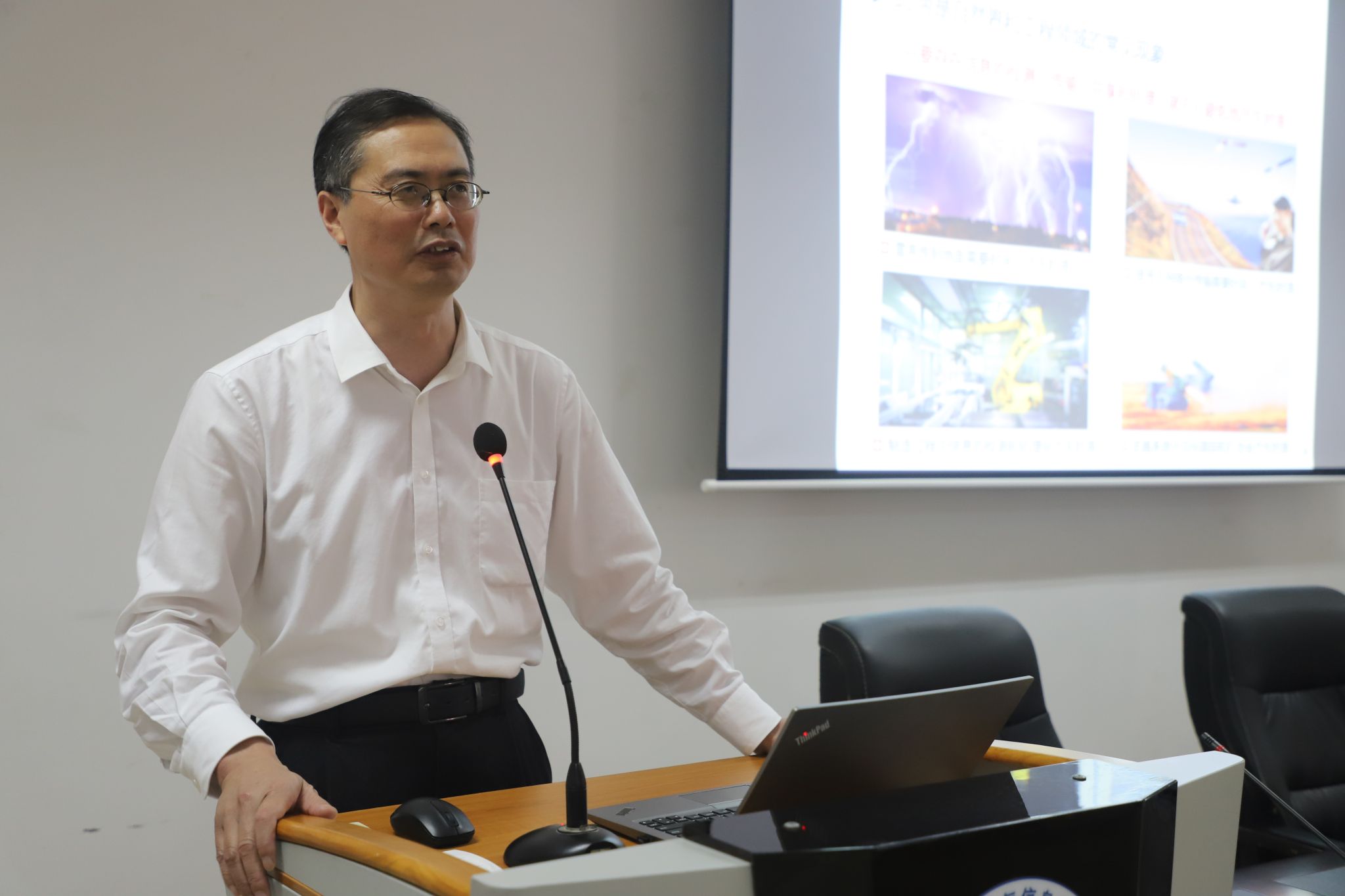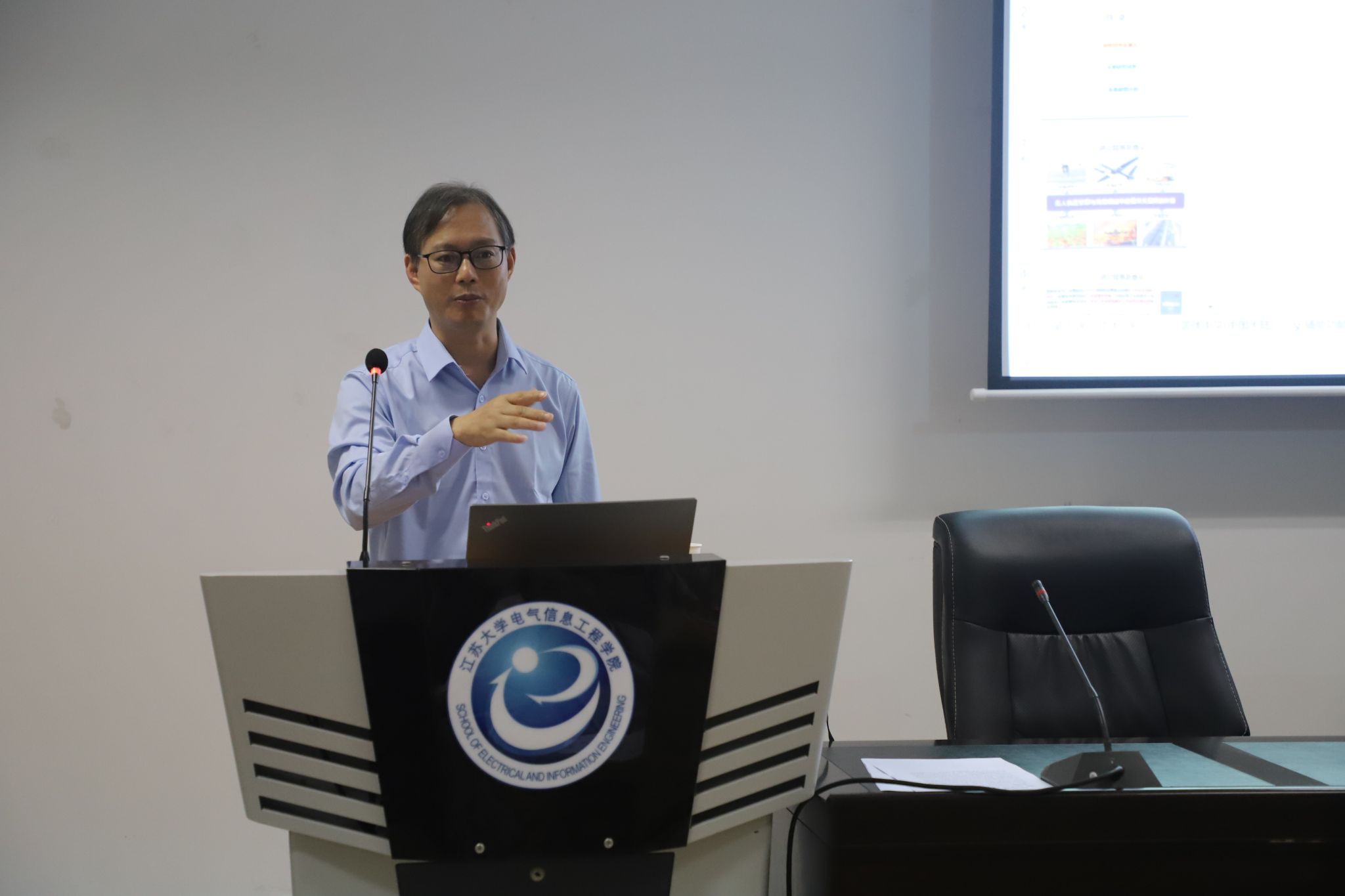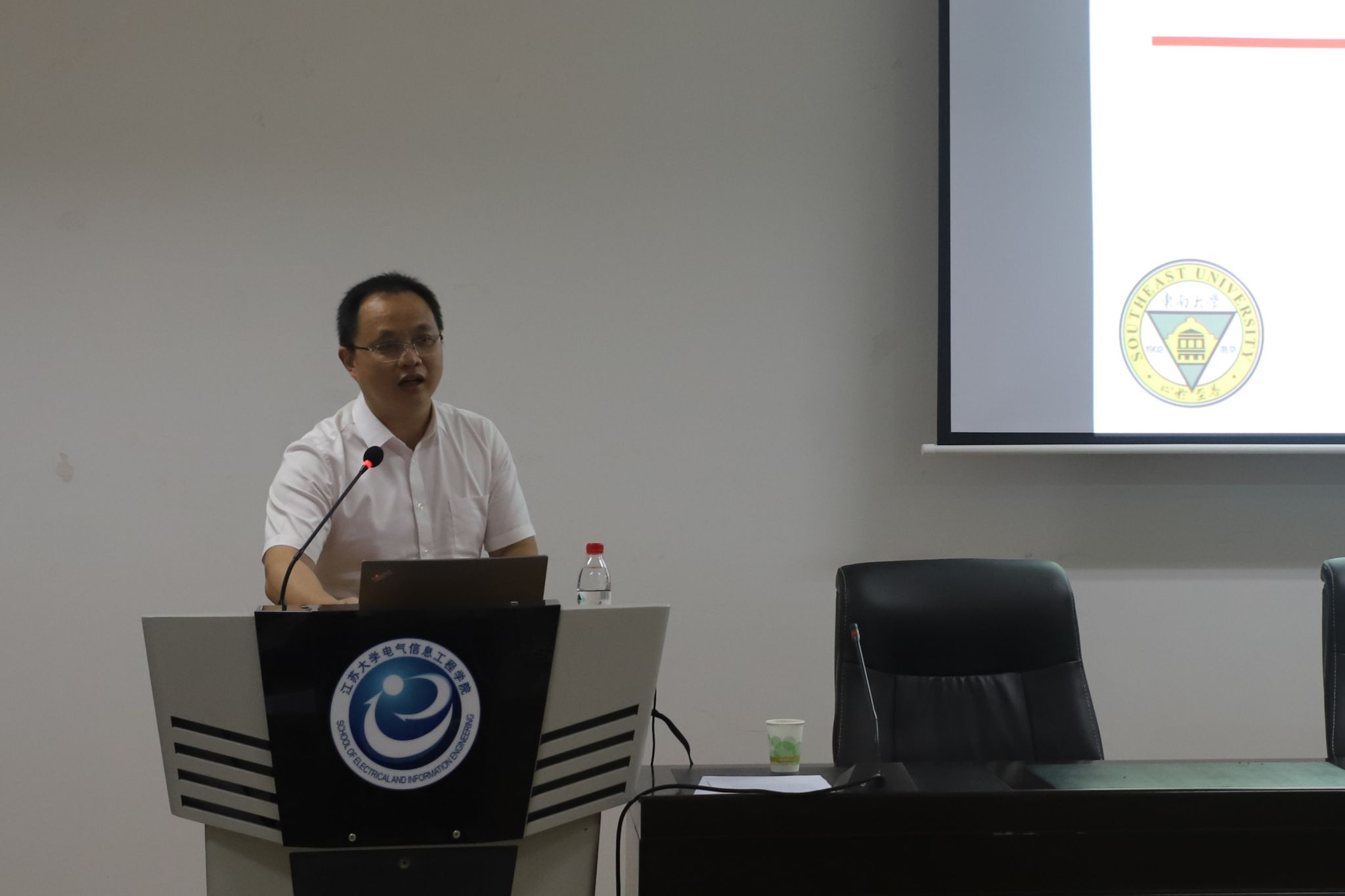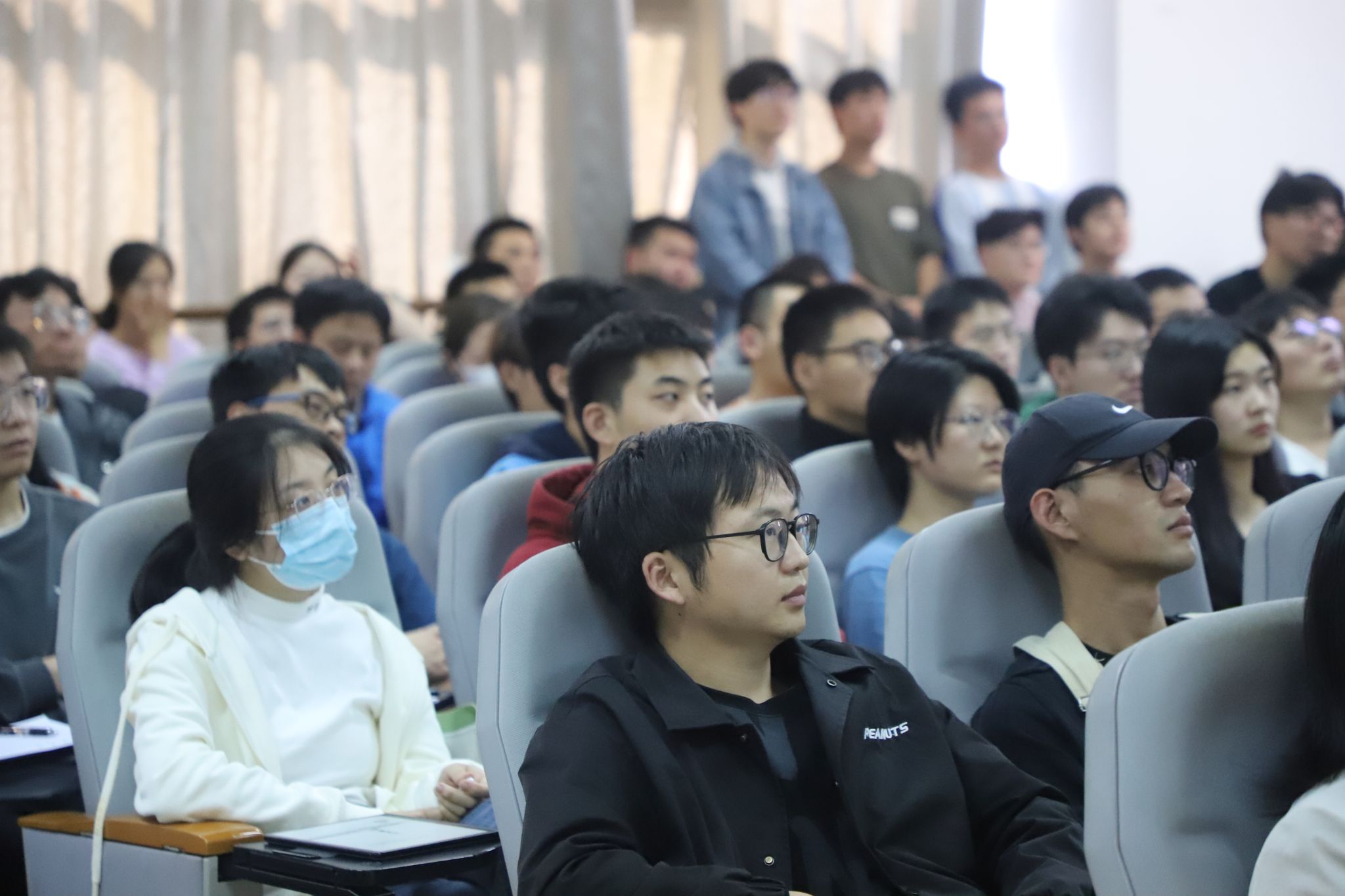On October 12, 2023, at the invitation of EIE, Professor Xu Shengyuan of the School of Automation of Nanjing University of Science and Technology, Professor Chen Mou of the School of Automation of Nanjing University of Aeronautics and Astronautics, and Professor Li Shihua of the School of Automation of Southeast University gave lectures titled "Time Lag" in Lecture Hall 415 of the Electrical Building. Reports on "Research Progress in System Stability Analysis", "Robust Flight Control Technology for UAVs under Multiple Constraints", and "Research Progress in Electromechanical System Interference Control Technology", more than 100 teachers and students from EIE attended the report meeting, which was hosted by EIE Professor Liu Guohai presided over.
In his report, Professor Xu Shengyuan first introduced the background of the research on the stability of time-delay systems. The time-delay was derived from a simple linear time-invariant system. From this, he proposed that the stability problem is the most basic issue in time-delay research. He also analyzed the current time-delay system in detail. Difficulties and key scientific issues facing control theory. Then Professor Xu introduced the research results of the stability study of time-delay systems. Based on the conservatism of time-delay systems, he proposed slack variables and discovered the merging rules of redundant information in stability criteria to reconstruct the stability analysis method in a unified way. Finally, Xu The professor introduced the follow-up research on the stability of time-delay systems, moving from sufficient conditions to verify stability to sufficient and necessary conditions.
Professor Chen Mou's report was introduced by "Made in China 2025". The document clearly pointed out that it is necessary to focus on breakthroughs in autonomous drone control technology and the incident of drone loss of control and crash pointed out the importance of autonomous drone control research. Professor Chen listed three specific examples of UAV optimal maneuver control based on event triggering, UAV attitude control under input and output constraints, and UAV adaptive fuzzy safety optimized flight control under track constraints and shared the research results. Then he introduced future research plans for UAV autonomous control, especially anti-interference flight control, integrated design and other directions.
Professor Li Shihua first introduced the MSC experimental studio, and then analyzed the electromechanical system modeling, analysis and control solutions in simple terms through examples such as the fully automated operation of port wheel cranes and the docking operation of offshore LNG loading and unloading arms. Then the distributed optimal control of multi-mechanical systems is further introduced, and the control problem is proposed with strong electromechanical nonlinear characteristics and diverse electromechanical interference characteristics, and distributed optimal control is carried out. Finally, Professor Li introduced the electromechanical system control considering visual servoing.
After the report, the participating teachers and students actively spoke and asked questions, and the three professors patiently answered them one by one. This report lasted nearly two hours and deepened the understanding of electrical teachers and students in the field of automation.




 Location:
ENGLISH
>
College News
>
Content
Location:
ENGLISH
>
College News
>
Content